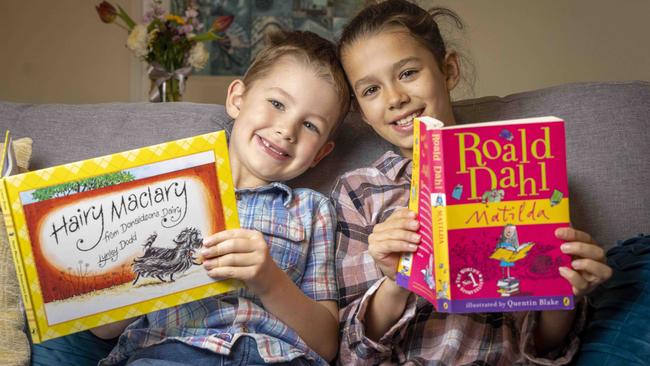Popular children books deemed not culturally diverse enough
Experts say books like Possum Magic and The Very Hungry Caterpillar could be “detrimental” to Aussies kids’ educational and social outcomes.
Education
Don't miss out on the headlines from Education. Followed categories will be added to My News.
Some of Australia’s most-loved books, including Possum Magic and Rosie’s Walk, have been labelled too old and not culturally diverse enough by literacy experts.
Classic children’s books such as The Very Hungry Caterpillar, Hairy Maclary, Wombat Stew, We’re Going on a Bear Hunt, and Where the Wild Thing Are have been criticised for “reflecting dominant culture and outdated viewpoints and lifestyles” by researchers from Edith Cowan University.
Lead author Helen Adam said the problem wasn’t the books themselves – which were “beautiful and nostalgic” - but the over-reliance of teachers on these texts.
She is calling for teachers to pick from a more diverse selection of books to avoid an over-reliance on older books, including those written by Dr Suess and Roald Dahl.
“While classic books arguably have a place within the classroom, it is essential that this takes place alongside more contemporary texts that better represent the diversity of society,” she said.

Dr Adam said the “potential impact on children could be detrimental to equitable educational and social outcomes” and “raise some significant concerns”.
“When children’s own worlds are invisible in the books shared with them emotions including doubt, anxiety or even fear can result and impact on their wellbeing,” Dr Adam said in an article in the Australian Journal of Teacher Education.
The study of the text preferences of 82 trainee teachers found only eight out of 177 favoured books for use in their schools had representations of people of colour. In only four books there was a main character who was a person of colour.
“While a further one of these eight books, Possum Magic, was an animal story, it did show representation of a person of colour in one illustration on one page,” Dr Adam said.
Ten books were singled out because they had been listed by more than 35 per cent of the teachers surveyed. The books range in publication date from 1992 (Rainbow Fish) to Where the Wild Things Are which was released in 1963.
Dr Adam also said it was also a concern that six of the top ten books had animal characters with no humans in them. Dr Adam said the “prominence of animal stories is that this further decreases the likelihood of children from minority backgrounds seeing characters similar to themselves”.
Mark Lopez, author of School Sucks: A Report on the State of Education in the Politically Correct Era, doubted teachers would be free to read such classic books anyway.
“These days books are chosen on quotas not quality,” he said.
“There is a lot of left-wing bias in book selection in schools which is leaving kids bewildered and angry.”




